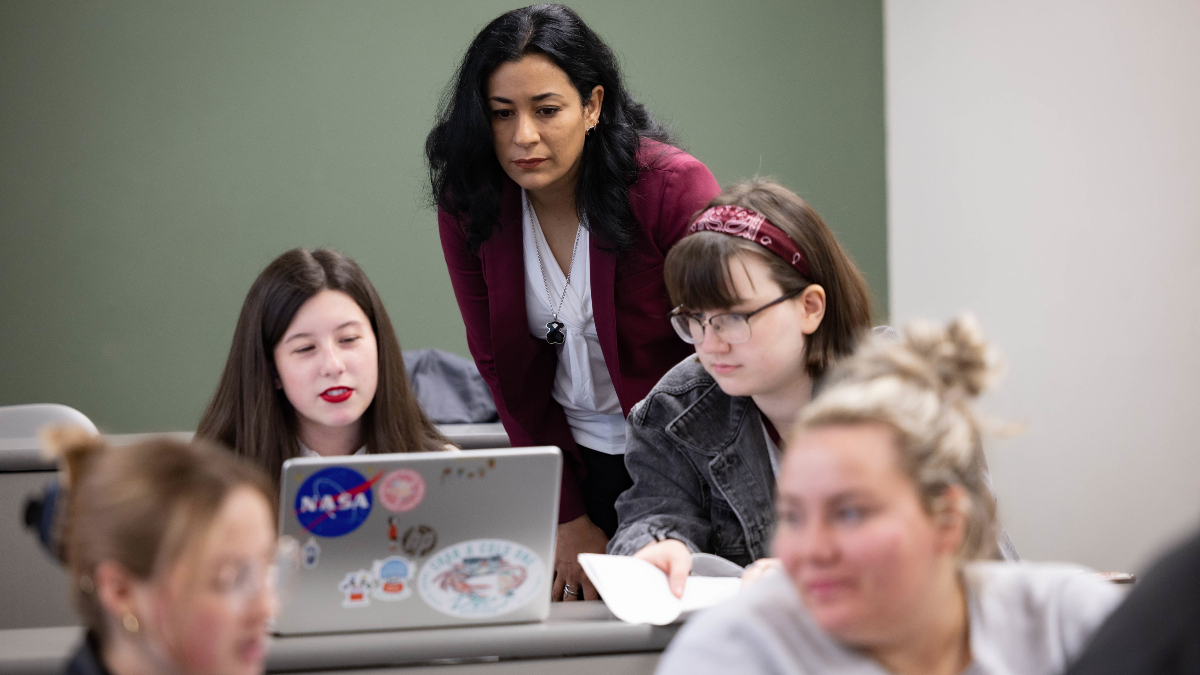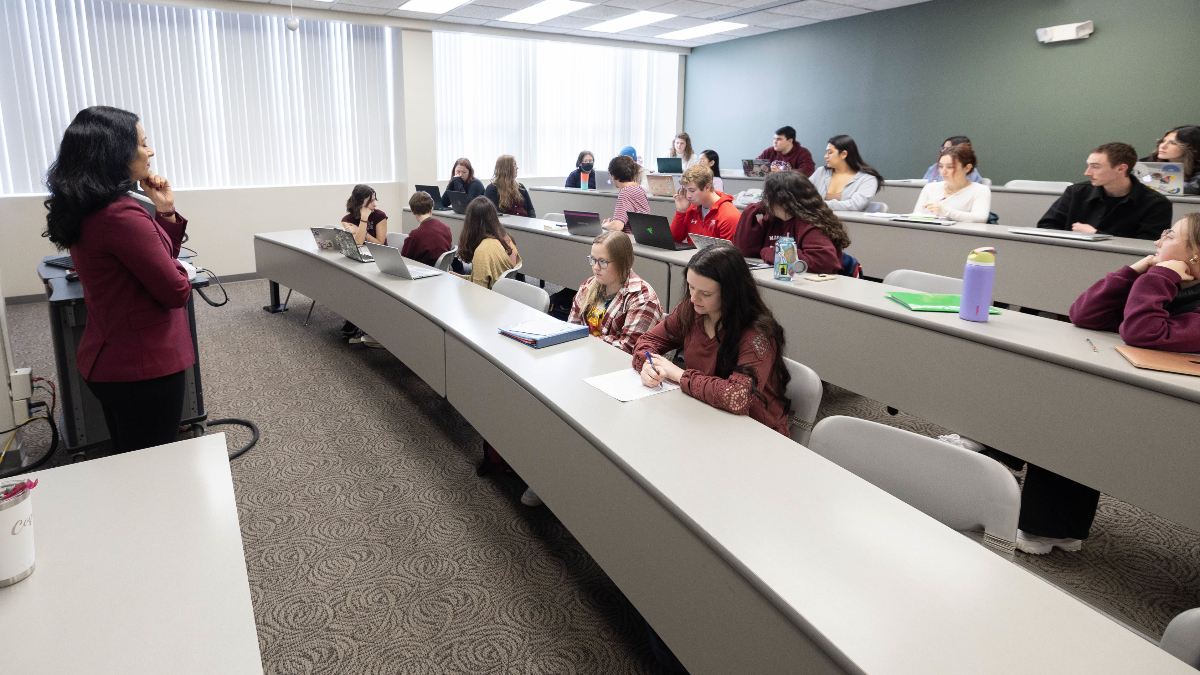Archive for January, 2023

Forced migration and the glorification of cartel culture
These forms of literature reflect unnerving realities of violence and crime, forcing many to migrate to the United States to escape the dangers they face. Some never make it.
Dr. Judith Martínez is an assistant professor for the department of world languages and cultures at Missouri State University. Her dialectical research focuses on the coexistence of neoliberal violence and Latinx literature, film, music, telenovelas and series.
A personal experience escaping violence
Martínez grew up in Monterrey, Nuevo León, Mexico, in an area she describes as privileged as far as safety.
“There wasn’t a lot of violence when I grew up. I could go on the streets and ride my bike,” Martínez said. “But then things changed drastically.”
After earning her bachelor’s degree there, she came to the United States to earn her Master of Arts in Teaching. Then she returned to Mexico to be closer to family and continue her teaching career.
That’s when tragedy struck. She was picking up her son from school and the sound of screams filled the hallways. There was an attempted kidnapping by a local cartel that left four people dead.

Dr. Judith Martinez studies the neoliberal violence that started in Central America and Mexico in the 1990s.
Using personal trauma to guide her research
The experience left Martínez traumatized. She and her family moved back to the U.S., and she earned her PhD at the University of Arkansas.
Since then, Martínez has seen parts of her country overtaken by crime. This elevated her interest in social justice, politics, current events and literature.
“Everything I was reading really appealed to me and why I came here,” she said. “It wasn’t really my choice [to leave Mexico]. I was escaping violence. It was relevant to me because I had lived it.”
This interest led to her research agenda. She studies the neoliberal violence that started in Central America and Mexico in the 1990s.
In 2022, she was awarded the Foundation Award for Research from Missouri State University. Her article, “The Central American Migrant: Mexico, the never-ending border,” focuses on forced migration.
Teaching an understanding of forced migration
“When we talk about immigration, we talk about the border a lot. But I see the whole Mexican country as a never-ending border,” Martínez said.
“We only think about the [physical] border between Mexico and the United States: when they crossed the river, when they crossed the wall or when they jumped the wall. We rarely think about when they cross through Mexico, and what they experience as they travel, which is a never-ending border.”
Martínez shares stories and books and reflects with her students. Now that society is more globalized, it’s easier now than before to understand that what happens in Mexico affects what happens in the U.S. and vice versa.
“In Spanish we have a saying; ‘Cuando los Estados Unidos tiene gripa, México estorduna,’” she said. Or, when the U.S. has a cold, Mexico starts sneezing.

As society becomes more globalized, Dr. Judith Martínez has found students are more understanding of the ways that experiences in one country cause ripples in another.
She explains that literature exposes us to realities that no one talks about, and that ultimately the goal is to want to change that reality and to seek justice and dignity for all.
“These books and cultural texts are windows to seeing a different side of the story. They’re going to hopefully make you want to move to action,” Martínez said.
She teaches several courses on border literature. Ryan Mitchem, a Spanish and psychology student, took Martínez’s Latin American Literature class.
“We talked a lot about forced migration,” Mitchem said. “Martínez really emphasized how immigration [from Mexico and Central America] isn’t a slight decision. A lot of times it’s a life-or-death situation.”
He also learned the phrase “pensar es servir” or, to think is to serve. He said Martínez encourages her students to have a global view when making decisions or dealing with other people.
“You never know what someone’s past is like, and you never know what their situation is,” he said.
Students learn not to contribute to these social problems with stereotypical or negative thinking, but instead to approach them by taking other perspectives into account.
Martínez is motivated to bring to light the reality about migration.
“Everybody talks about how beautiful Mexico is; the Day of the Dead, the Cinco de Mayo dances, the margarita nights, taco Tuesday, Cozumel, Cancun … but why are people coming over in caravans every day? Why are people willing to risk their lives completely to cross into situations that are unbearable just so they can survive?”
Her mission to make visible what was once invisible is what drives her research every day.
Further reading
- Story by Sofia Perez
- Photos by Jesse Scheve

